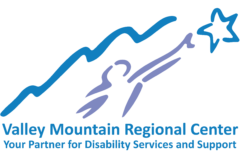Lanterman Developmental Disabilities Services Act
The Lanterman Developmental Disabilities Services Act is codified in the California Welfare and Institutions Code. This compilation, prepared by the Legislative Counsel, includes the 2018 revisions to the Lanterman Developmental Disabilities Services Act and related laws (Divisions 4.1, 4.5, and 4.7 of the Welfare and Institutions Code and Title 14 of the Government Code). For the official and most current versions of the Lanterman Act and other California law, please visit the California Legislative Information website. This edition shows all sections as they are in effect on and after January 1, 2019.
Title 17 California Code of Regulations
Title 17 is a portion of the California Code of Regulations that contains the regulations pertaining to the Department of Developmental Services (DDS) as well as other regulations. Those pertaining to DDS, starting with Section 50201, cover parental fees, conflict of interest code, rules for conducting research, client rights, fiscal audits and appeals, fair hearings, vendorization procedures, regional center administrative practices and procedures, standards and rate-setting procedures for community-based programs and in-home respite services, and residential facility care and services.
Title 22 California Code of Regulations
Title 22 Regulations apply to all community care facilities regulated by the Community Care Licensing Division, except where specifically exempted, and are available at the California Department of Social Services website at.
California Early Intervention Services Act
Cal. Gov. Code Secs. 95000 – 95030 and regulations in Title 17 C.C.R. govern early intervention services for all eligible children aged 0 – 3 in California. The California Early Intervention Services Act is designed “to provide a statewide system of coordinated, comprehensive, family-centered, multidisciplinary, interagency programs, responsible for providing appropriate early intervention services and support to still eligible infants and toddlers and their families.” [Cal. Gov. Code Sec. 95002.] This bill became effective on September 30, 1993.
Individuals with Disabilities Education Act
A word-searchable database of special education-related state and federal statutes and regulations, federal guidance documents, and editions of the Federal Register.
IDEA is composed of four parts, the main two being part A and part B.[2] Part A covers the general provisions of the law; Part B covers assistance for education of all children with disabilities; Part C covers infants and toddlers with disabilities, including children from birth to age three; and Part D consists of the In practice, IDEA is composed of six main elements that illuminate its main points. These six elements are: Individualized Education Program (IEP); Free and Appropriate Public Education (FAPE); Least Restrictive Environment (LRE); Appropriate Evaluation; Parent and Teacher Participation; and Procedural Safeguards. To go along with those six main elements, there are also a few other important components that tie into IDEA: Confidentiality of Information, Transition Services, and Discipline. Throughout the years of IDEA’s being reauthorized, these components have become key concepts when learning about IDEA.[3] (excerpted from Wikipedia Oct 2019).
Wage and Hour Division
Fact Sheet #13 Employment Relationship under the Fair Labor Standards Act (FLSA)
Fact Sheet #21 Recordkeeping Requirements under the FLSA
Fact Sheet #33 Residential Care Facilities (Group Homes) under the FLSA
Fact Sheet #53 The Health Care Industry and Hours Worked
Fact Sheet #54 The Health Care Industry and Calculating Overtime Pay
Home and Community Based Services Waiver (HCBS)
This is a link to DDS’s webpage that has information on the rules for HCBS. HCBS rules make sure that people get services in places where people without disabilities are or may be at some point. It also includes rules impacting employment services, residential supports, full access to the greater community, having personal control of your own things, and receive services to the same degree as individuals who do not receive regional center services. “It means that settings need to focus on the nature and quality of individuals’ experiences and not just about the buildings where the services are delivered. Individuals have an active role in the development of their plan, the planning process is person-centered, and the plan reflects the individual’s service and supports and what is important to them.
